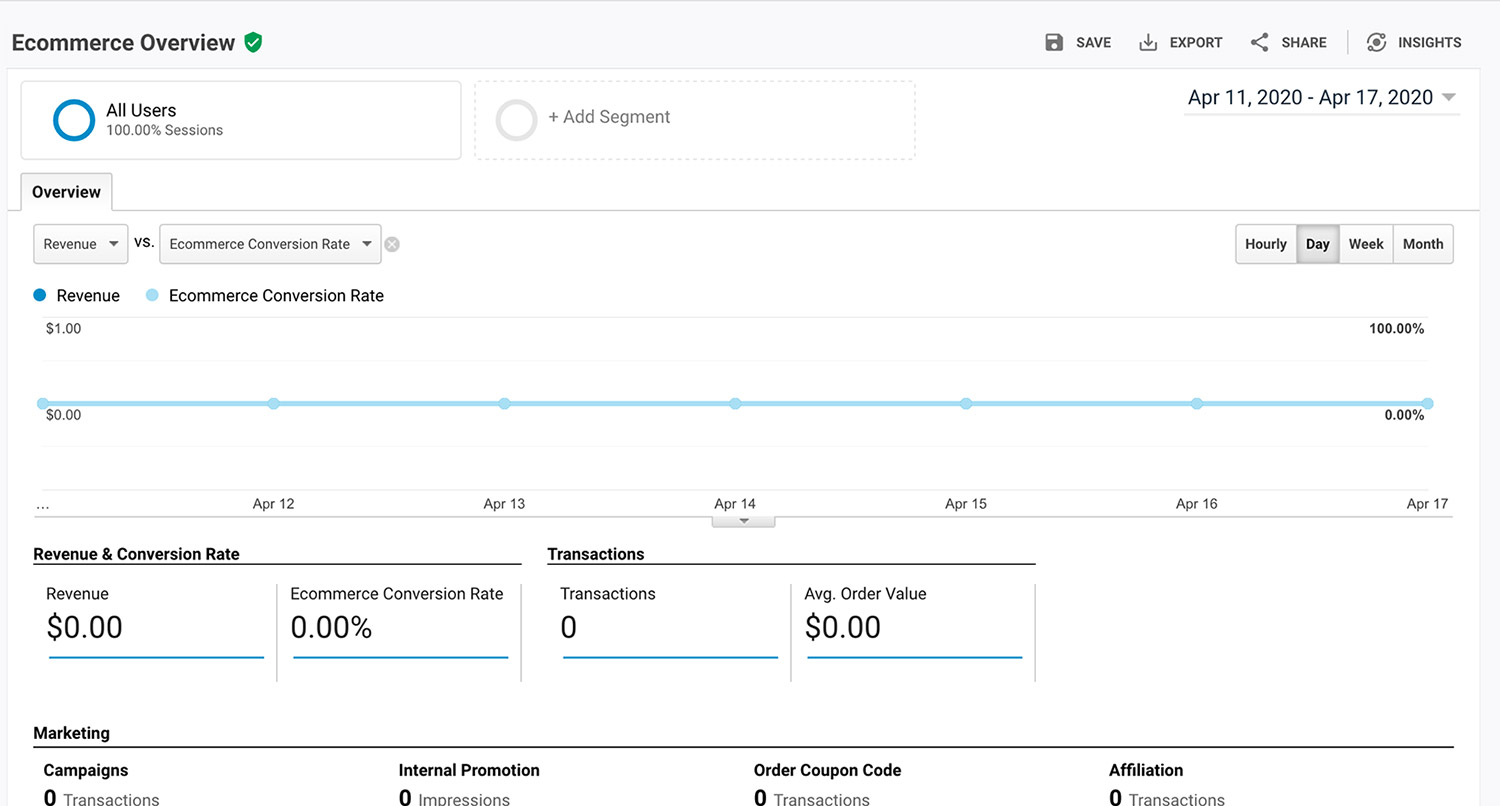You’re probably thinking about creating an ecommerce website.
Like, you want to create it right now. You’ve seen the ads about how quickly you can create an online store. And you’ve probably heard the stories of people creating an online store in just minutes and being successful.
But like an iceberg, there’s a lot more to building an online store and selling online than what meets the eye. There are technical issues that you’re going to need to work through. There are . And then of course there are the dreaded taxes.
So before you charge headfirst into creating an ecommerce website, let’s take a second to look at what you need to be successful with it. That way you’ll be ready for whatever comes your way.
Creating an ecommerce website is no small task
First off, you really need to know that creating an ecommerce website is going to be no small task. You don’t just create a successful online store on a whim, despite what any sort of advertisement might show you.
There’s a whole lot that goes into it. First, you need to figure out what platform and web hosting you’re going to be using. Then you need to figure out your theme/template/web design. Oh, and don’t forget about figuring out how exactly people are going to pay for the products you sell.
And then there’s a whole lot of offline problems to sort out. Do you know about taxes? Do you have an accountant who can help walk you through that? Are you in a position to be able to sell online? Do you have a process? Can you handle a dramatic increase in sales should it happen?
Now is the time to stop and think through all of those things before you find yourself neck deep in issues with your website.
Finding the correct web hosting
One of the key things that you’re going to have to figure out before you create an ecommerce website is to figure out the web hosting situation.
Web hosting plays a key part in your online store. If you pick the right web host, you’re not going to have any worries about your website going down randomly all the time and your security concerns go down. But if you pick the wrong one, you’re going to have a frustrating time.
To that end, you need to do a lot of research to figure out which one is the best for you. I can go ahead and tell you that the $5 a month web host that you come across isn’t going to cut it.
You really need something that has a strong backend, has good features (such as daily and on demand backups) and takes security concerns seriously. And yes, you’re probably going to have to pay a little bit more for it, but it’s going to be really worth it in the long run.
So take the time now to do your research and find a web hosting company that’s going to be a help for your ecommerce website and not a major hindrance.
Get the Guide for Building Your New Website
Creating a new website for your business might seem easy, but building it correctly is a challenge. And that challenge doubles when you want to add an ecommerce element to your site. So get the guide that will walk you through each step so that you can feel confident in knowing what you’re doing and build the perfect website for your business.
Download the Website Planning GuideWhat platform are you going to use to create an ecommerce website?
Next up, in conjunction with figuring out a web host, you also need to figure out what platform you’re going to use for your ecommerce website. And again, this can have a pretty big effect on your online store down the road.
Unfortunately on the cheap side of things, this eliminates the possibility of using Wix or Squarespace. While they might be good for starting a basic website on a budget, they don’t really offer great ecommerce solutions. For that, you probably want to look at using something like Shopify.
The good news is that the major content management systems, like WordPress, Drupal and Joomla, do have ecommerce solutions that are powerful and can scale should your business start to grow (which hopefully it will). Though with each of those you will have to pay for hosting and potentially for themes and other add ons.
And then there’s always the completely custom solution, which will get you exactly what you want and need, but it’s probably going to cost you a pretty penny to get it.
But again, before you dive headfirst into the building process, make sure you research and figure out which platform you want to use first.
Custom design or prebuilt template?
Next, once you’ve figured out your web hosting situation and what platform you’re going to use, it’s time to figure out if you’re just going to use a prebuilt template (i.e. a WordPress theme that you buy and use) or create a custom design (which will likely involve a web agency or developer).
The first option is going to be the cheapest. There are a lot of WordPress ecommerce-focused themes that you can buy for less than a hundred dollars and get installed on your website. And most of them will allow you to customize it a bit to match your branding without editing any code. But the downside is that it is a theme and design other people are probably using, so you lose that unique side of things. Plus any bigger changes to color and branding that can’t be done through options it gives you will require changes to the code.
The other option will likely be considerably more expensive. A good custom ecommerce theme or template design and creation will cost you at least a couple of thousand dollars. And that might be lowballing it. But at the same time, you’re going to get a website that is uniquely yours and built to serve your wants and needs now and hopefully in the future as your business grows.
But take the time now to figure that out so that you know exactly what you want before you start this process. It will save you time, headaches and money in the future.
Don’t forget about shipping
Another thing that you’ll need to think about ahead of time is shipping your products to your customers. Obviously, if you’re selling digital products, this is extremely easy to answer. But if the products are physical, those products aren’t going to ship themselves.
So you’re going to need to figure out how you’re going to ship the products. Are you going to use UPS, the Postal Service, Fedex or another shipping company? Which one is going to be cheaper for you? Do they have better rates for small businesses that ship a lot?
Also, what is the process for shipping products with each company? How do you print shipping labels? Is there anything in the platform you’re using that could help you out with this part of the process?
You’re going to need to research and think this through and then develop a plan to act on ahead of time. It’s going to save you a lot of time and headaches doing it now rather than during your first sale.
Get Insights on How to do a Small Business Website Right!
Are you looking to get some help with your small business’ website, but aren’t quite in a spot to take that next step? No worries! I’ve got you covered with a small business newsletter. This weekly newsletter will talk about a different subject related to websites and small businesses each week, as well as highlight blog posts that can help you out. This will help you optimize your business’ site as much as you can while you get yourself into a position to take the next step for your website.
"*" indicates required fields
Do you know about the sales tax?
So what exactly do you know about sales tax? Do you know what sales tax rates are in your state? Or maybe what the rate is in a state across the country? Did you know that in some states, some items don’t need a sales tax?
Sales tax is a massive spider web full of potential danger if not handled correctly. I won’t get too far into the specifics as I’m not a lawyer or an accountant, and even I don’t fully comprehend everything about it.
But it is something that you really need to think about and plan for ahead of time. If you already have a business, you probably have a good grasp on your own state’s sales tax (or at least I hope you do). But once you start selling online to customers outside your own state, things become a bit murkier. Some states might want sales tax, some might not.
So before you charge headfirst into a potential pitfall, sit down with an accountant and lawyer and figure out what you need to do first. Then create a plan you can act on. There’s a lot you have to worry about as a business owner, so don’t needlessly add in another worry.
Do you have the offline structure to support an ecommerce website?
Finally, the biggest thing you need to know and figure out before creating an ecommerce website is whether or not you have the offline structure to support it. Because this is where things can really go south in a hurry.
You are going to need to figure out how orders are going to go from the customer through your website to someone on your team to being fulfilled and then being shipped. There’s a lot more moving parts than what meets the eye from the outside.
And there’s a lot of potential for this to go wrong, especially if you suddenly see a spike in sales. And if you don’t have a solid plan in place, what seemed like a good thing is now an overwhelming task. But if you have planned for it, you can calmly sort through the orders and get everything taken care of.
If this is your first time, you might be blinded by the fact that you can make money online, which is really cool. But it can hide the hard parts underneath once people start buying from you. Now is the time to be realistic about what you can do.
So think these things through before you begin. I don’t mean for any of this to completely scare you off from creating an online store. In fact, if you truly want to start selling online, go for it. Be you.
But before you start, stop and think through your plan. Think about all of these things and write things down. Having a battle plan before riding into battle can go a very long way towards being successful.







